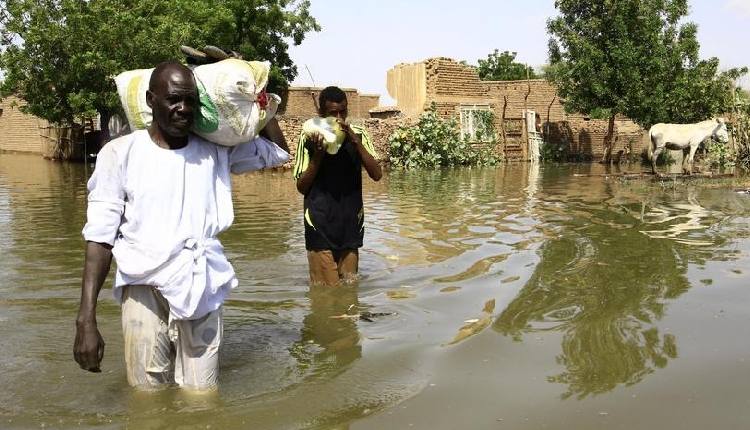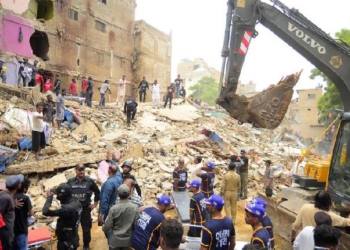United Nations: Nearly 890,000 people in South Sudan have been affected by floods, more than twice the number recorded three weeks ago, a UN spokesperson said.
Farhan Haq, deputy spokesperson for the UN secretary-general, told a daily briefing that the Office for the Coordination of Humanitarian Affairs reported that flooding continues across South Sudan due to heavy rains and rising water levels along the Nile River.
The vast majority of the people affected are in the states of Jonglei and Unity, and nearly a third of them have been displaced and are seeking shelter on higher ground, he said.
The floods have caused extensive damage to homes, crops, schools, health facilities, roads and other critical infrastructure, further complicating humanitarian access, said the spokesperson.
“Despite these challenges, the UN and its humanitarian partners continue to deliver life-saving assistance, including shelter, food and nutrition support, cash assistance, health and water and sanitation services,” as well as sandbags and other flood control materials, Haq said.
Above-average rainfall is expected across most of South Sudan, heightening flood risks, he added.
As of October 13, the 2025 Humanitarian Needs and Response Plan for South Sudan, which seeks $1.7 billion to assist 5.4 million people, is only 30 per cent funded, hampering the ability to scale up emergency interventions, pre-position supplies, and sustain operations, according to the spokesperson, Xinhua news agency reported.
Widespread flooding caused by heavy rains in South Sudan had also killed 19 people and affected an estimated 639,225 others across 26 counties in six states, a UN humanitarian agency said.
It said at least 121 health facilities have been impacted amid reports of 144 snake bites and 3,391 malnutrition cases across 11 counties.
South Sudan is highly prone to flooding due to its location in the Nile River Basin, low-lying topography, and a combination of factors, including heavy rainfall and high water levels in Lake Victoria. Flooding has become more extreme in recent years, displacing hundreds of thousands of people, destroying farmlands and livestock, and worsening food insecurity.
(IANS)
















